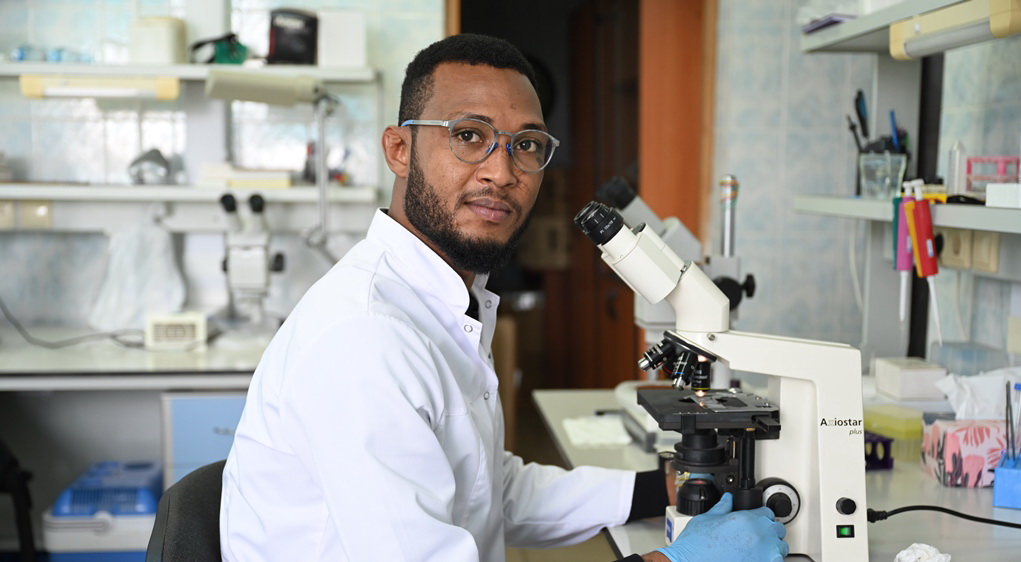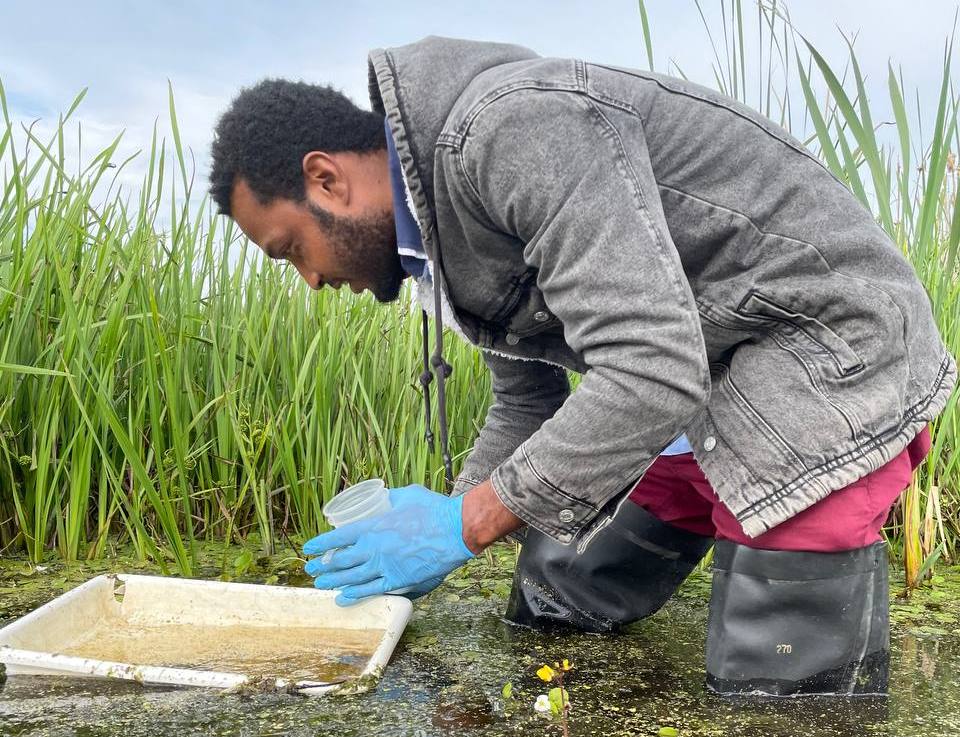International students choose Tomsk State University to obtain a high-quality education. However, some of them set even more global goals: They choose to work at the university in order to use their experience in solving issues in their native country. Mohamed Kader Haidara, an early-career geneticist, told Alma Mater how TSU research will enable him to create a new approach to malaria prevention in order to protect the country and the people of Mali and Mauritania, as well as other African and Asian countries.
Alma Mater: Mohamed, you obtained your higher education in Russia. How did you choose a specialty and university to study at?
Mohamed Kader: I was interested in biology during my school years, so I put special emphasis on it. I passed my exams successfully and was one of the best graduates in the country, so I got the chance to study abroad. I had to choose between several countries, and I chose Russia. At first, I studied Russian in Belgorod. Then I moved to Kursk, where I completed my bachelor's degree.
Thinking about where to continue my education and which master's program to enroll in, I started looking for a university with a strong genetics school. I considered several universities, including in St. Petersburg and Moscow, but TSU replied to me first. Unfortunately, the pandemic interfered with my plans. I had to study online for the first year of my master's program. At the same time, I worked in a molecular biology laboratory at the National Research Medical Center in my country. I studied the second year of my master's program in Tomsk, at the same time I got a job in the Laboratory of Ecology, Genetics, and Environmental Protection. After my master's degree defense, I continued to work there. I am very eager to enroll in postgraduate program and get a degree at TSU.

Alma Mater: It seems that you are close to medical topics? Is your current research related to it and what is the focus of your research?
Mohamed Kader: My research is related to studying the genetic features of malaria mosquitoes. Malaria is not a problem of concern for many countries, including Russia, but there are many countries, including my country Mali and also Mauritania, where hundreds of thousands of deaths are caused by malaria annually. Pregnant women and preschool children are more often exposed to the disease because they have the weakest immunity and are less resistant to malaria infection. Seniors also have reduced immunity, but their bodies have already had contact with malaria, so they are still more protected. When I worked in a health center, I saw people dying fr om this disease.
TSU has accumulated great experience in this particular area. I study genetic mechanisms that can provide mosquitoes with new features, for example, increase their resistance to unfavorable factors, such as drought, high and low temperatures, and so on. The acquisition of such stress tolerance may favor the expansion of malaria mosquitoes' range and improve their adaptive capacity. Such research is important for humankind that is why it is supported by the federal program Priority 2030.
Alma Mater: Mohamed, you said that your professional goal is to fight malaria. How do you plan to accomplish this goal?
Mohamed Kader: Yes, as I said, I would like to enroll in a postgraduate program, defend my thesis and get a degree, and then I will return to my country and work there. I have ideas about how to control malaria without exterminating malaria mosquitoes or editing their genome. Such options are being considered by some scientists, such as how to use artificial mutation to reduce the fecundity of mosquitoes and thus reduce their numbers. I believe that mosquitoes are an important link in the ecosystem, because they are food for birds and other animals, so exterminating them would negatively affect fauna. I want to pursue a different approach and create a vaccine that will effectively protect people from malaria.

There is only one malaria vaccine in the world so far, called RTS,S. It was developed by other countries' scientists and has recently been approved by the World Health Organization. It is good that such a product has appeared, but this vaccine, firstly, does not provide a hundred percent protection, but only reduces the severity of the disease course among some people; secondly, it is not available to everyone. It is targeted only at children under five years, so other groups of children remain unprotected.
The third important point is that this vaccine provides temporary rather than permanent protection. Finally, the fourth factor is that the vaccine targets a single virulent malaria parasite, which is called Plasmodium faciparum, and ideally it should be effective against several of the major and most dangerous malaria pathogens. Moreover, it is well-known that diseases considered to be cured can return. For example, this was the case in Armenia, wh ere malaria was eliminated in the Soviet period, but returned in the 1990s. Fortunately, it was localized.
Fighting malaria is a professional challenge for me. I hope that the experience and knowledge I gained at TSU will help me create a way to protect people from this disease.